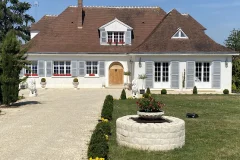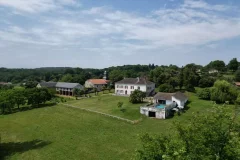Nord-Pas-de-Calais Economy
In the last decade, the economy the French region Nord-Pas-de-Calais has know a general increase.
Nord-Pas-de-Calais became a major centre of heavy industry in the 19th century with coal mines, steel mills and traditional textile manufacture. It suffered badly in both World Wars and recovered less quickly than did other parts of France. In more recent years, it has been facing economic slumps as the mines closed, decline in the steel industry and major problems for the textile industry.
Between 1975-1984, the region lost over 130,000 jobs and unemployment rose to 14% of the working population, well above the national average. The region has, however, benefited from major government and European Union investment over the past 20 years. The opening of the Channel Tunnel in 1994 was welcomed in the region as a means of boosting its prosperity. Tourism, particularly in Lille at the apex of the London-Brussels-Paris railway lines, has grown considerably, to the extent that in 2004, 7 million passengers used the Eurostar, as well as 2 million vehicles on the Eurotunnel. In addition to the trains, in 2002, there were about 15 million passengers from the three major ferry ports of the region (Calais, Dunkirk and Boulogne-sur-Mer)
Nevertheless some branches of the regions economy (such as industry, property building or tourism) have had problems with providing new jobs or even with keeping pre-existing employment.
But on the whole, the general economic trend of the Nord-Pas-de-Calais region is quite similar to the economic situation of France.
Nord-Pas-de-Calais has an unemployment rate of 10%.
This region also offer financial and physical support for people in need such as elderly people, disabled people, unemployed people...









